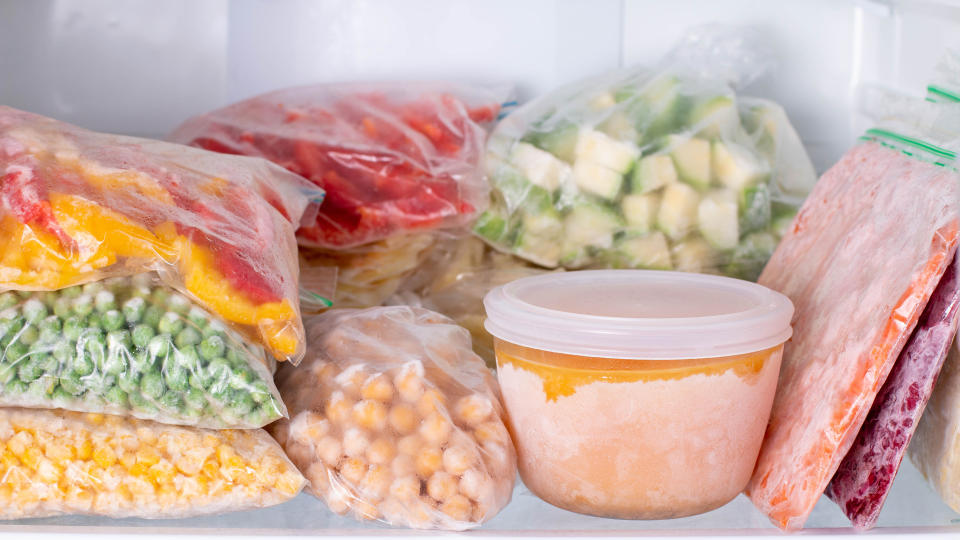5 Frozen Veggie Options That Will Save You Money as Inflation Continues to Rise

If you have advanced past the age of two, then someone in your life has probably lectured you about the importance of eating your veggies. It might never have occurred to you to say, “But they are so expensive!” You could say that now — because it’s true — but you should still eat your veggies.
See: September’s Consumer Price Index Shows Inflation Higher Than Expected After Fed Rate Hikes
Find: Consumer Price Index: How Much More Did Bacon & Eggs Cost You in September Because of Inflation?
The index for fruits and vegetables rose 1.6 percent in September, according to the Bureau of Labor Statistics. That’s significantly higher compared with the overall food price increase, estimated at about 0.8%.
But that doesn’t mean you get to skip your veggies. Buying them frozen is typically cheaper than buying them fresh, the Guardian reported last year. What’s more, some veggies are just as tasty and nutritious when frozen as they are when fresh.
Here are five frozen veggies that can save you money as fresh produce prices rise:
Peas: The sugar in peas turns into starch as soon as they are picked, which can hurt their texture and flavor, according to the EatingWell website. But because frozen peas are frozen at the peak of ripeness, they will have a sweeter taste with the same nutritional value.
Spinach: Because you can pack a lot of spinach into one frozen container, one cup of frozen spinach has more than four times the amount of nutrients than a cup of fresh spinach, EatingWell reported.
Broccoli: You’re usually better off with fresh broccoli if you want to retain the right flavor and texture. But frozen broccoli still provides a cheaper alternative, with the added bonus of being able to grab a bag of only florets if that’s your thing.
Corn: This is another veggie that freezes well. While it can’t replace that sweet, delicious crunch you get from a fresh ear of corn, frozen corn can still deliver enough flavor to make the savings worthwhile — especially when corn is not in season. Frozen corn also has fewer calories and carbs than fresh corn, according to Southern Living.
Carrots: Fresh carrots have a pretty short shelf life, usually lasting only a few days in the refrigerator before they start to turn brown. Because frozen carrots are chosen shortly after harvest, they can still maintain their fiber, vitamin A, and beta-carotene nutrients.
Take Our Poll: Are You Struggling To Keep Up With Your Utility Bills?
Whether you roast them or steam them, you’ll still get many — if not more — nutrients from these frozen veggies while also saving money.
More From GOBankingRates
This article originally appeared on GOBankingRates.com: 5 Frozen Veggie Options That Will Save You Money as Inflation Continues to Rise

 generic
generic 